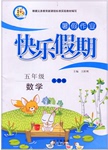题目内容
【题目】阅读理解
My transportation was unexpectedly smooth and I arrived at themeeting half an hour earlier. I kept my eyes on the restaurant door. Severalcustomers entered, but not my friend. At 6:00 pm, she sent me a text message:“Urgent work to finish. Will be 20 minutes late.”
I had left my book in the office, so I spent the time thinkingof my experiences of being late in China. On my first visit in 1985,punctuality was deeply rooted in the Chinese hearts. There were no traffic jamsthen.
As a teacher in Canada, I always insisted on punctuality. Iwould open the classroom door to a late student for the first time and thesecond, but not the third. During the six years I worked for CCTV, I had aChinese friend whom I often saw at lunch time, or after work. We used to meetat the subway station nearby. He was always late by 10-20 minutes. To myquestion, “You were busy?” he would surprisingly answer, “ No.” Once I askedhim to check the clock in his office, he smiled.
In March 2015, I got permanent residence (居住权) in China.The ceremony was scheduled for 9:00 am at the Public Security Bureau on theSecond Ring Road. I told my driver I had to get there by 8:40 am. “No problem,”he replied. But he thought he had time to drop someone off at the airportbefore picking me up. I desperately waited for him. Then, to rub salt into mywound, he had to stop at the exit of a gas station. Finally, I entered the roomat 9:07 am ── the last guest to arrive!
(1)What can we learn from the passage?
A.The author is always late for work or any activities.
B.The author dislikes making friends with unpunctual persons.
C.The author hates being late from the bottom of heart.
D.The author can do something to deal with unpunctuality.
(2)If the author’s student comes late for the third time, _______.
A.he will let him/her remain outside
B.he will open the door for him/her again
C.he will shout at him/her loudly
D.he will tell him/her to take care next time
(3)How did the Chinese friend feel when the author asked him to check the clock?
A.Excited.
B.Embarrassed.
C.Satisfied.
D.Shocked.
(4)Why didn’t the author arrive at the ceremony on time?
A.Because the gas was running out.
B.Because his driver met a guest at the airport.
C.Because there was a big traffic jam on the road.
D.Because the driver estimated the time wrongly.
【答案】
(1)C
(2)A
(3)B
(4)D
【解析】本文讲述的是作者总想做个准时的人,但在中国往往因为意想不到的事情而不能达成准时的愿望。
(1)C考查判断推理题。根据文章中叙述的作者总是想尽可能地准时但往往不能如愿可推断作者从心底不希望迟到,当然也不希望别人迟到,故选C项。
(2)A 考查细节推理题。根据文章中第三段的I would open the classroom doorto a late student for the first time and the second, but not the third我会为一名迟到的学生开一次、两次门,但不是第三次。可知作者学生第三次迟到将会不允许进入教室,故选A。。
(3)B考查细节推理题。根据文章第三段的To my question, “You were busy?” he would surprisinglyanswer, “ No.” Once I asked him to check the clock in his office, he smiled对于我的问题“你很忙吗?”他将会很吃惊地回答“不”。一旦我让他看看办公室的表时,他笑了。其中的surprisingly和smiled可知当中国的朋友听到作者看看时间几点了时候会感到尴尬,因为自己的失误。A. Excited激动的;B. Embarrassed尴尬的;C. Satisfied满意的;D. Shocked.震惊的。故选B项。
(4)D 考查判断推理题。根据该文章最后一段的Buthe thought he had time to drop someone off at the airport before picking me up.I desperately waited for him. Then, to rub salt into my wound, he had to stopat the exit of a gas station. Finally, I entered the room at 9:07 am ── thelast guest to arrive但是他认为他在接我之前让人下车。我绝望地等待他。那是在我的伤口上撒盐的是他不得不在一家加气站前停车。最后我在9:07到达,最后一个到达的客人。可知作者没有意识到路上会发生这些意想不到的事情导致作者参加葬礼迟到。故选D。

 一诺书业暑假作业快乐假期云南美术出版社系列答案
一诺书业暑假作业快乐假期云南美术出版社系列答案